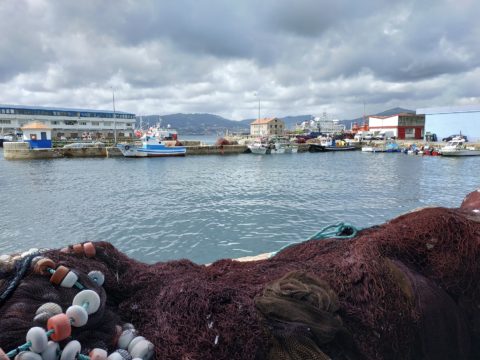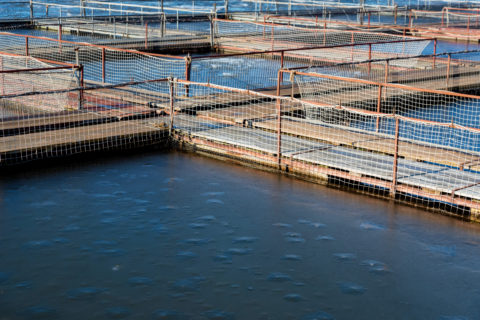AIMPLAS develops a new method for converting marine plastic waste into aquaculture products
The ÑCostas Project will make it possible to reuse plastic material recovered from the sea and waste from the aquaculture industry to make walkways and platforms for fish farms, port protection products, flotation tubes, and nets and mesh for reinforcement, among other products.
The Plastics Technology Centre and the Spanish Institute of Oceanography (IEO) are the technical coordinators of this project sponsored by a consortium of companies made up of Acteco, Duraplastics, Ecoplas, Barbanza, Plastire, Rotogal and Solteco.

The aim of the ÑCostas Project is to convert plastic material recovered from the marine environment into new recyclable and sustainable materials for use in products for aquaculture. The project is technically coordinated by AIMPLAS, the Plastics Technological Centre, and the Spanish Institute of Oceanography (IEO) to make use of plastic waste recovered from the sea to develop new products for the aquaculture industry. These products will be processed using conventional transformation technologies and will maintain and even improve the properties and useful life of current products.
Specifically, this research project, which started in 2021 and will last for four years, studies the treatment and recycling of recovered plastic material for use in walkways and access platforms in fish farms to replace the wood currently used; port protection products, structural and floating tubes for platforms and buoys for signalling and anchoring; and reusing plastic waste products such as fishing gear, nets and meshes to create more lightweight reinforcement for concrete platforms and other products.
The project is based on the best method for recovery, selection and processing of marine plastic waste and aquaculture industry waste, considering its lack of uniformity and the different levels of degradation at different times in the sea.

AIMPLAS contributes its experience in recycling, the circular economy and different technologies for transforming plastic. The project is sponsored by a consortium of companies made up by Acteco, Duraplastics, Ecoplas, Barbanza, Plastire, Rotogal and Solteco, all of which are benchmark companies at national level and cover all manufacturing sectors and technologies in recycling plastic products and the design and manufacture of products related to the aquaculture industry. RDC is also a collaborating member.
Making Spain a pioneer in the recovery of marine plastic waste
“The results of this project will put us one step ahead of current legislation. In addition, Spain is one of the European Union countries with the most kilometres of coastline, so development of the ÑCostas Project will make Spain a pioneer in the recovery of marine plastic waste and the collection of fishing gear for reuse in products in demand in the aquaculture sector. The experience acquired in this project for reuse of this waste can also be applied to other sectors”, said Raúl Araque, a researcher in the Agriculture and Aquatic Environment Group at AIMPLAS.
Most of the plastic products found in the seas and coasts of Spain are polyolefins (e.g. HDPE and LDPE), the most common material for making bottles and bags. When combined with smaller amounts of other polymers, polyolefins are used to create all kinds of containers, such as styrene. These materials have a high chemical resistance, which makes them ideal for recycling products for the use in the marine environment.
The ÑCostas Project: Sustainable agriculture. Development of recyclable and sustainable products based on plastic material recovered from the marine environment is being implemented primarily in the Valencian Community, Galicia and La Rioja. It falls within the framework of funding for Cooperative Research and Development Projects from the Centre for the Development of Industrial Technology (CDTI) with the support of the Ministry of Science and Innovation, and co-funded by the European Regional Development Fund (ERDF).
